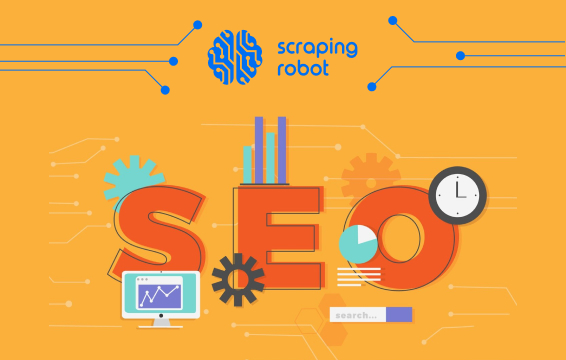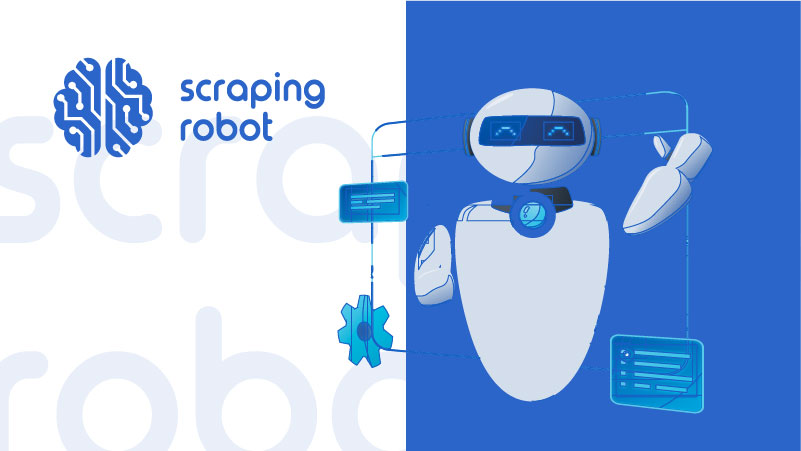How To Use An SEO API (And How To Pick The Best API)

For someone that often has difficulty finding the right words to describe things, I really love crossword puzzles. The hunt for words, the blank page like an ocean, each letter a pull on the reel, and the final thrill of the catch. Only one other activity comes close for me, and that is hunting for SEO keywords. Unlike crossword puzzles though, the hunt for SEO keywords does not always have a right answer. The answer is always changing and what was right today might be wrong tomorrow. This is why rather than fish for keywords manually with the internet equivalent of a hook and line, I prefer to trawl with a net (metaphorically, of course). Enter the SEO scraper. The SEO scraper is our metaphorical trawler, helping you scrape the internet en masse for the right keywords to use in ranking your content.
But what about the stormy days? When you need to fish but you can’t dare the weather? Or those days when you just feel lazy? It would sure be nice to be able to send your trawler out on its own. Enter the SEO API. The SEO API is how you tell your crawler to go out and fish on its own. But, enough with the fishing analogy. An API is an interface that helps different software communicate. Working hand-in-hand with an SEO scraper, an SEO API can help you automate your keyword research strategy and other aspects of SEO.
Put down your pens and flex your fingertips because we’re about to break the world of SEO wide-open. If you already have a good grasp of how SEO scraping works, you can use the table of contents to skip ahead and learn how you can use an SEO API for better SEO.
Table of Contents
What Is SEO Scraping?
 Before we take a deep dive into the complexities of an SEO API, let’s solve the puzzle of SEO scraping. If SEO is the practice of optimizing keyword density in website copy, scraping for SEO goes one step further by searching for keywords and phrases that relate back to the topic you’re writing about. SEO scraping is how you step up your keyword research and change your SEO game. Scraping tools help to break down the language of the internet (typically HTML, or hypertext markup language) and translate it into digestible information. After the smart bot breaks down the information, it organizes it into readable documents. Rather than conducting time-intensive research on your own, a scraper or data bot does the work for you, implementing its own algorithm to sniff out the data on the best content related to pizza, dogs, or whatever your company produces, sells, or markets.
Before we take a deep dive into the complexities of an SEO API, let’s solve the puzzle of SEO scraping. If SEO is the practice of optimizing keyword density in website copy, scraping for SEO goes one step further by searching for keywords and phrases that relate back to the topic you’re writing about. SEO scraping is how you step up your keyword research and change your SEO game. Scraping tools help to break down the language of the internet (typically HTML, or hypertext markup language) and translate it into digestible information. After the smart bot breaks down the information, it organizes it into readable documents. Rather than conducting time-intensive research on your own, a scraper or data bot does the work for you, implementing its own algorithm to sniff out the data on the best content related to pizza, dogs, or whatever your company produces, sells, or markets.
What does this mean for you and your company? It means better keywords, more optimized content, and better rankings. Scraping the internet for SEO data gives you a big edge over competitors. Even better, you will probably be using their own data to beat them. Using scraping bots allow you to mass-collect SEO data (trawler over hook and line). And in the SEO game, the more data you have, the better. But it doesn’t stop there. You can step-up your SEO scraping even further using an SEO API. So what does an SEO API do?
What is an SEO API?
 Like we mentioned earlier, an API is an interface that allows different pieces of software to talk to themselves. Say, for example, you have an eCommerce store, and you’d like to list some products that are available on Amazon on your store using Amazon’s prices. Now, you could spend all day, every day writing out product names and prices and entering them on your eCommerce store. You’ll get the job done, probably. But you’ll have wasted a lot of time and effort. Even worse, prices might change the following day, and then you’ll have to update it again. Rather than go through all this, you could simply build an API for your store. With your API, you can communicate with Amazon’s API, send requests for the data you need, and return it to your website, updating your product info without any manual input. That is how useful an API is. This is just one use case for APIs. There are several ways you can use APIs for your business. However, our focus here is on using an API for SEO scraping.
Like we mentioned earlier, an API is an interface that allows different pieces of software to talk to themselves. Say, for example, you have an eCommerce store, and you’d like to list some products that are available on Amazon on your store using Amazon’s prices. Now, you could spend all day, every day writing out product names and prices and entering them on your eCommerce store. You’ll get the job done, probably. But you’ll have wasted a lot of time and effort. Even worse, prices might change the following day, and then you’ll have to update it again. Rather than go through all this, you could simply build an API for your store. With your API, you can communicate with Amazon’s API, send requests for the data you need, and return it to your website, updating your product info without any manual input. That is how useful an API is. This is just one use case for APIs. There are several ways you can use APIs for your business. However, our focus here is on using an API for SEO scraping.
Now that we know how an API works, it is a short leap to understanding how to apply it with a keyword scraper. Traditional web scraping can reasonably handle most of your scraping needs. But SEO is a niche where you are trying to keep an eye on datasets that are constantly changing. Using a traditional web scraping model will require constant manual inputs. An SEO API helps you avoid this. The API can send scraping requests in real-time and at regular intervals. With an API, you can send scraping requests every 60 seconds or any other interval you want without manual input.
When it comes to keyword research, which is the pillar of SEO, using an SEO API is revolutionary. Every day, your competitors are ranking for new keywords. Every, new terms are being coined in your industry or niche. All of these constitute a wealth of keyword data that you need to scrape regularly to keep up with changes. The right keyword today might not be right in a few days’ time. By combining an SEO API with a keyword scraper, you can completely automate the process of researching keywords. Once you’ve entered the keywords you want to scrape, your API can keep sending the scraping request even when you are not there.
How To Pick the Right API To Scrape for Better SEO
 All APIs are equal, but some are more equal than others. There are many APIs out there, some of them good, some of them bad, and some of them just “meh.” Obviously, you don’t want the bad ones, and “meh” is one size not good enough. So how do you identify the best APIs to use when you are data scraping for SEO? Here are a few things to look out for:
All APIs are equal, but some are more equal than others. There are many APIs out there, some of them good, some of them bad, and some of them just “meh.” Obviously, you don’t want the bad ones, and “meh” is one size not good enough. So how do you identify the best APIs to use when you are data scraping for SEO? Here are a few things to look out for:
- Speed: As I said, some APIs are more equal than others. You want an API that is fast enough to keep up with changes in data, so you can avoid having a backlog of data and ensure you are only using up-to-date data.
- The volume of requests: The more requests the API can handle, the better. Some APIs limit you to a certain number of requests per day, while some have a parallel limit. You can only send a limited number of requests at the same time. Choose whichever one gives you the highest number of requests.
- Timestamping: The major purpose of using an SEO API is to collect up-to-date data. So you should choose an API that allows you to make requests using a particular timeframe as reference. This way, you can make requests for data from the last time you sent out a request.
- Good documentation: Proper documentation is very essential to easy integration of an API. If the API is poorly described or improperly documented, it makes using it that much harder to use.
Different Ways to Use an SEO Tool API
 Now, all along, we’ve been talking about how an SEO API can help revolutionize your keyword research. However, there are other ways to implement an API for SEO scraping.
Now, all along, we’ve been talking about how an SEO API can help revolutionize your keyword research. However, there are other ways to implement an API for SEO scraping.
- Location data: In terms of geography, SEO is divided into two; local and global SEO. And depending on where your customers are found, you have to invest in either of the two. But how do you find out where your consumers? You can use an SEO API to set up a continuous SEO scrape on the location of your readers. You can set up the API to directly request the location data from Google’s location API or you can set it up with a web scraper to send scraping requests. You can also scrape API SEO keywords with location to get location-specific keywords.
- Demographic data: Writing for the right demographic is very valuable for SEO. If you sell a product for 20-year olds but write for 40-year olds, your content will not rank high. So you need to know exactly where your consumers fall. Not just in age, but also race, religion, etc. You can easily scrape this data with the aid of free SEO tools API, especially if you sell different products that cater to different demographics. You can keep an eye on the shifting constitution of your audience by using an API to automatically scrape their data at regular intervals.
- The medium of accessing your website: One of the things Google uses to rank your website is mobile responsiveness. Most users access the web on mobile now, so if your website is not mobile-optimized, your rankings will drop. Using an SEO API, you can easily find out how the majority of your audience is accessing your website. If more users are accessing your website through a desktop or laptop, it might mean that your mobile design is poor, so mobile users aren’t using it.
- Link building data: Link-building is one other crucial aspect of SEO that an SEO API can work wonders for. Bad links, broken links, links to irrelevant websites, all these are things that can harm your rankings, so you need to constantly check them. You can set up an API to send automated scraping requests to scrape your own website for link data. That way, you can take out bad links and replace them. You can also use this to identify link-building opportunities with new platforms or old platforms that have a new focus.
The Best Free SEO API on the Market
 If by the end of this article, you decide to invest in an API web scraper (which I hope you do), then you don’t have to go far. Rather than build an SEO API, spending thousands of dollars in upkeep monthly, you can just use Scraping Robot’s public SEO API. Scraping Robot has APIs for web scraping that allows you to simultaneously send unlimited numbers of scraping requests and get real-time data in as fast as 60 seconds. Remember our list of things to look out for when picking an API? Our public scraping API checks every box on the list. Check out our API documentation to learn more (yeah, it is well-documented too).
If by the end of this article, you decide to invest in an API web scraper (which I hope you do), then you don’t have to go far. Rather than build an SEO API, spending thousands of dollars in upkeep monthly, you can just use Scraping Robot’s public SEO API. Scraping Robot has APIs for web scraping that allows you to simultaneously send unlimited numbers of scraping requests and get real-time data in as fast as 60 seconds. Remember our list of things to look out for when picking an API? Our public scraping API checks every box on the list. Check out our API documentation to learn more (yeah, it is well-documented too).
After a simple registration, you’re ready to try out 5000 free scrapes with our free SEO API. Every scrape after that costs only $0.0018. These rates are unbeatable. In addition to the awesome features above, we make frequent improvements to our software. We recognize how fast technology moves, not only that, we stay on top of our fast-paced world. We have several modules available, and if you do not find a module that fits your need, you can request a custom module to be built for you. So you don’t have to invest in any infrastructure. Just sign up for a Scraping Robot module, and you can start using our scraping API to gather real-time data for your business.
Wrapping Up
I remember one of the first crossword questions I answered right. The question read: Famous literary street in London. The answer: Baker street. It’s been 6 years since I answered that question with ease and I’ll never forget it. I have fallen in love with the hunt for the right words ever since. And right now, I aim to help you fall in love with the hunt too by making it as easy as possible for you to find words as soon as you need them. With the help of Scraping Robot’s public SEO API, your website will march to the top results of search engines and keywords will be denser than…. what’s a 5-letter word for uranium?
The information contained within this article, including information posted by official staff, guest-submitted material, message board postings, or other third-party material is presented solely for the purposes of education and furtherance of the knowledge of the reader. All trademarks used in this publication are hereby acknowledged as the property of their respective owners.
